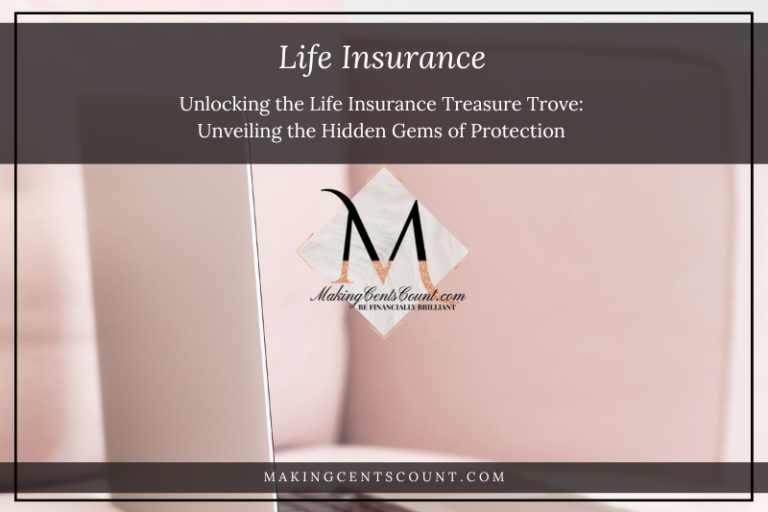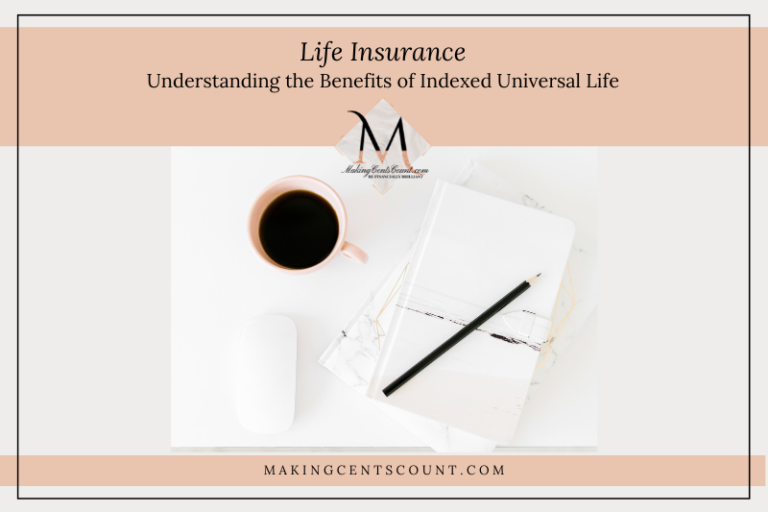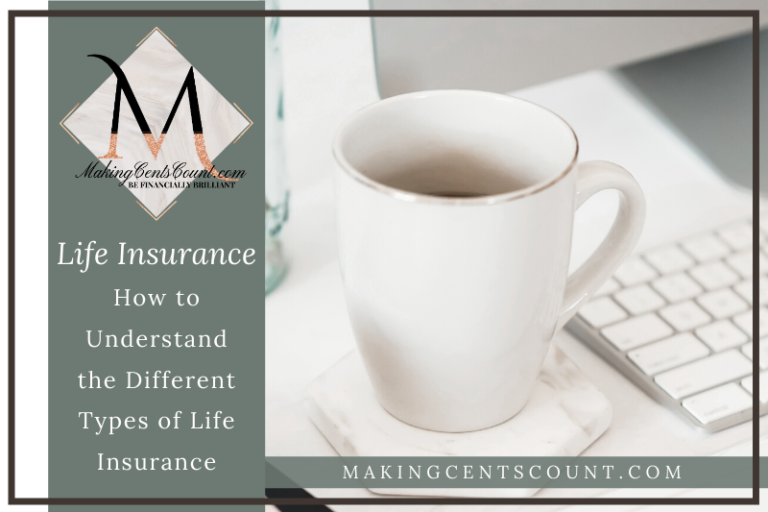September Is Life Insurance Awareness Month: 7 Facts You Need To Know
Estimated reading time: 12 minutes
September is Life Insurance Awareness Month (LIAM). This month holds a special place in my heart for many reasons. Throughout my career, I’ve dedicated myself to selling life insurance, recognizing its significance as the cornerstone of any strong financial strategy. However, life insurance is not just a professional endeavor for me; it’s personal. Growing up, my parents never had life insurance, and when they both passed away, it truly hit home. I truly understand the importance of protecting what matters most.
Table of Contents
- 7 Facts About Life Insurance to Know During Life Insurance Awareness Month
- 1. Deciphering the Power of Life Insurance: Beyond Your Benefit
- Unlocking Wealth: A Remedy for Financial Hardship
- Unleash the Power: Securing Your Loved Ones’ Financial Future
- 2. Protecting Her Legacy: Why Life Insurance is Vital for Women
- To Insure or Not? Single and Without Dependents: A Surprising Perspective
- 3. Securing Your Finances: The Essentiality of Life Insurance
- 4. Why Single People Shouldn’t Skip Life Insurance: Protecting Your Future Matters
- Decoding the Need: Two Questions to Determine if Life Insurance is Essential
- 5. Protect Your Business with Life Insurance: Safeguarding Your Success
- Ensure Business Continuity: Secure Your Buy/Sell Agreement with Life Insurance
- 6. Leaving a Legacy: Unveiling the Power of Life Insurance
- 7. You Don’t Need to Fear the Underwriting Process
- Simplified Underwriting: Unlocking the Irresistible Allure
- Conclusion
- Making Cents Count Financial Organizer
Are you ready to start investing, control your finances, and prepare for retirement? Join our amazing community! You’ll receive exclusive financial tips from Making Cents Count, as well as unlimited FREE access to our resource library full of money-saving tools and guides.
7 Facts About Life Insurance to Know During Life Insurance Awareness Month
Now, for a little background on Life Insurance Awareness Month. LIAM was created in 2004 by Life Happens. The organization is a non-profit dedicated to empowering and educating individuals about personal financial responsibility through the ownership of life insurance and associated products.
Since its establishment in 2004, Life Insurance Awareness Month has evolved into a comprehensive nationwide campaign, held every September. The primary objective of LIAM is to enlighten individuals across America about the significance of life insurance, empowering them to obtain the necessary coverage for their needs.
Life insurance is of utmost importance, and let’s be honest, it can feel a bit daunting. That’s why, to commemorate Life Insurance Awareness Month, we’re sharing seven crucial facts you should know about life insurance. September presents a wonderful opportunity to expand your understanding and get ready for the future.
1. Deciphering the Power of Life Insurance: Beyond Your Benefit
Life insurance often carries a stigma, with many dismissing its benefits, questioning, “Why bother? It won’t do me any good.”
Before we proceed, let’s address the elephant in the room. Life insurance may not be the most captivating topic, but it serves a crucial purpose. And, with it being Life Insurance Awareness Month, there’s no better time to confront our mortality. However, it’s important to remember that life insurance isn’t for us—it’s for the loved ones we leave behind. Although it may not be a pleasant subject, understanding the significance of life insurance is vital for securing the financial well-being of those who matter most.
Six months. According to the 2021 Insurance Barometer study, that’s how long it would be before 42% of Americans would face financial hardship if they lost a primary wage earner. One in four Americans would struggle financially within one month.
Unlocking Wealth: A Remedy for Financial Hardship
The remedy for financial hardship is rather straightforward: acquiring life insurance. Surprisingly, over 102 million Americans are either underinsured or lack life insurance coverage altogether.
The COVID-19 pandemic has significantly altered consumers’ views on life insurance, as 31% of Americans express an increased likelihood to obtain coverage in 2021. Among individuals who have tested positive for COVID-19, this figure rises to 42%, indicating a heightened interest in purchasing life insurance this year.
The COVID-19 pandemic has significantly increased the propensity of Black and Hispanic Americans, Millennials, and men to purchase life insurance.
Unleash the Power: Securing Your Loved Ones’ Financial Future
Life insurance is a crucial tool for safeguarding the financial future of your loved ones and meeting immediate needs. By opting for life insurance, you ensure ongoing support for those who matter most to you. Conversely, if you choose not to continue such support, the decision rests solely with you. However, it’s important to recognize that in unforeseen circumstances, life insurance can be the determining factor. That being your loved ones being able to afford housing expenses, such as mortgage or rent, or facing the risk of homelessness. As a financial professional, I highly recommend considering life insurance as a vital component of your financial plan.
Although not the most pleasant topic, it is crucial that we address it. Life Insurance Awareness Month aims to encourage open conversations about these difficult subjects, rather than simply ignoring them.
2. Protecting Her Legacy: Why Life Insurance is Vital for Women
The economic landscape has evolved over the past few decades, particularly for women. These transformations have influenced your financial role, both personally and professionally. Whether you find yourself as the primary or sole breadwinner, it is crucial to carefully assess your current life insurance requirements. As our lives progress, our life insurance needs also change – perhaps not on an annual basis, but it is advisable to review and evaluate these needs every few years or so.
According to the 2021 Insurance Barometer Study, by Life Happens and LIMRA, Despite persistent myths surrounding life insurance, the COVID-19 pandemic has made it evident that people have a genuine need for life insurance coverage. The insurance industry has responded by simplifying the process of obtaining coverage, making it more accessible than ever before. In fact, a significant 31% of consumers have expressed an increased likelihood of purchasing life insurance due to the ongoing global health crisis.
To Insure or Not? Single and Without Dependents: A Surprising Perspective
Should you skip insurance when you’re single without dependents? Generally, the answer is no. However, it’s important to consider your specific circumstances (for more detailed information, please continue reading). Consulting with a financial advisor is always a wise step to ensure peace of mind.
The great news is that life insurance tends to be more affordable for women compared to men of the same age. This is primarily due to differences in life expectancy. Women naturally have a longer lifespan than men. Additionally, obtaining a life insurance policy at a younger age and in good health can further contribute to cost savings. If we were to compare a man and a woman of the same age and health standing, the woman’s policy would be comparatively less expensive.
3. Securing Your Finances: The Essentiality of Life Insurance
Life insurance is a crucial component of your financial strategy. Even with your investments properly managed, having a life insurance policy provides an additional layer of protection and is a crucial piece of your financial health.
Life Insurance Awareness Month Provides the boost individuals require to secure a policy before the holiday season. It establishes the fundamental importance of life insurance within any sound financial plan. It also accomplishes the following:
Income Replacement: If something were to happen to you, would there be enough money to cover your burial expenses? What about outstanding debts, final expenses, and the monthly costs your household faces? Could your partner take extended time off work to adjust to their “new normal” without you? It’s important to consider these things for peace of mind.
Paying Off Mortgage: Considering that a typical mortgage can stretch up to 30 years, would you want your remaining balance paid off completely? Remember, it’s not just about the monthly mortgage payment, but also the ongoing real estate taxes, homeowners’ insurance, and more.
If you want your family (or those who matter to you) to continue living comfortably in your home even after you’re gone, it’s important to take into account these ongoing costs. These expenses can become a long-term financial burden for your loved ones year after year.
4. Why Single People Shouldn’t Skip Life Insurance: Protecting Your Future Matters
So, you may read the facts above and assume I’m not talking to you—think again! The importance of life insurance not only applies to people who are legally attached, but to the single women as well.
My closest girlfriend is single, owns a home, and has a little outstanding debt. In the event anything should happen to her, there would still be outstanding debt that her sister would need to pay off on her behalf. So, whether you’re attached or flying solo, take a good hard look at your “current” outstanding liabilities.
If you’re single, especially if you don’t have any children, I want you to consider these two questions concerning your life insurance needs:
Decoding the Need: Two Questions to Determine if Life Insurance is Essential
- Do you take care of an aging parent, sibling, or another person you’re legally responsible for?
- Do you hold a lot of debt?
- Outstanding mortgage
- Business loans
- Personal loans
- Student loans
- Car loans
Moreover, do you happen to have a co-signer for any unsettled debts? The reality of the situation becomes even more significant here. Typically, when you pass away, the executor of your estate will liquidate assets to assist in clearing your outstanding obligations. However, there’s a noteworthy caveat to consider: if you have a co-signer on any outstanding loans, they become legally responsible for repaying the loans on your behalf. It’s quite possible that if they had been fully aware of the implications involved, their decision to co-sign may have given them pause, at the very least.
5. Protect Your Business with Life Insurance: Safeguarding Your Success
If you are a business owner, life insurance can serve a couple of purposes with great potential! To all the women entrepreneurs out there, take note of these two essential considerations:
Life insurance can be purchased for key employees to safeguard your company from the loss of invaluable team members. Commonly known as “key person insurance” or “business life insurance,” this coverage will ensure continuity for your business in the event of the departure of key personnel. It not only covers the costs of training and filling the vacant role but also guarantees smooth operations without missing a beat.
Ensure Business Continuity: Secure Your Buy/Sell Agreement with Life Insurance
You can also get life insurance to finance what’s known as a Buy/Sell Agreement. It’s basically a formal business continuation plan where a designated buyer is legally responsible for buying the business stake. With the death benefit from the life insurance policy, the buyer purchases the deceased owner’s share. The best part? Not only is the buyer obligated to make the purchase, but the seller (or seller’s estate) is also legally obligated to sell the business share in the future event of:
- Death
- Disability
- Retirement
In my experience working with numerous business owners, I found that life insurance served as a remarkable choice for safeguarding their business interests. It not only provides a valuable safety net but also offers various other avenues for leveraging life insurance to ensure the smooth running of your business.
6. Leaving a Legacy: Unveiling the Power of Life Insurance
Do you wish you had more to give when you pass on? A life insurance policy is an excellent vehicle for philanthropic giving. Here are two ways to explore:
Leaving a Legacy: Use an insurance policy to grow your money and increase the size of your estate to your beneficiaries. The Death Benefit (Face Amount) of your policy is what’s paid out to your beneficiaries. It could provide your beneficiaries with a much larger legacy than otherwise possible. There are different ways of structuring your life insurance policy, so the set-up makes sense for whatever your circumstances. Be sure to check with your tax advisor regarding your particular situation.
Charitable Gifting: If you’re feeling philanthropic, donating your life insurance policy to a charity may enable you to give a more significant gift than you could otherwise afford. For example, I worked with a gentleman who went to Amherst. He wanted to leave a gift to his alma mater, and a life insurance policy was an excellent, painless method for him to do so.
When you’re looking at your estate planning, you’re looking at being a little more strategic as far as possibly minimizing taxes and creating a gift. The government also encourages charitable giving by providing tax advantages for certain charitable donations. Get advice before doing so because the charity must be considered a qualified charity (meaning both you and the charity would benefit from your donation). Be sure to check with your tax advisor regarding your particular situation.
7. You Don’t Need to Fear the Underwriting Process
Now you know a few of the ways life insurance benefits you, your beneficiaries, and your company. We’ve explored the philanthropic benefits of life insurance, too.
It’s time for a truth bomb…what usually holds people back from applying for life insurance is the underwriting process itself. I completely understand!
If you’re not exactly what’s considered a “perfect specimen” (AKA: a little ‘under-tall’ for your weight?) a fan of needles, urinating into a cup, and answering personal health (and family history) questions, no worries! One of the hottest topics in the insurance industry today is called Simplified Underwriting (SUW). Simplified underwriting means no medical exam.
Simplified Underwriting: Unlocking the Irresistible Allure
The appeal of simplified underwriting remains strong; and people were “somewhat” or “much more” likely to buy life insurance with a simplified underwriting approach. That makes it a strong option, compared with traditional underwriting approaches.
As far as the benefits of the simplified underwriting approach, there are many:
- It’s fast and easy.
- It’s unbiased and objective.
- There are transparent explanations of risk and pricing.
- It helps you avoid the need to see a doctor.
- It enables you to avoid the medical exam, blood, and urine samples.
- It doesn’t require a face-to-face conversation.
Conclusion
If purchasing a life insurance policy has been on your mind, yet you’ve been hesitant, there’s no better time than during Life Insurance Awareness Month (and, especially before the holidays) for utilizing all the benefits available to you and those you care for most.
If working on your finances is one of your goals right now (or, maybe it’s been a goal for some time), I suggest starting with the Making Cents Count Financial Organizer.
Our financial organizer is the robust answer you need. The organizer is our DIY financial services option, providing you with the tools to eliminate financial overwhelm.
- Clear strategies to get your finances under control
- Processes to organize and streamline your investments
- Guidance to track your legal documents, tax information, and permanent records
- Markers to know when you should meet with an attorney to establish a will or trust
- Templates, checklists, and step-by-step actions
- Insights on the financial-must haves to build a secure future
- Detailed How-To Guide for optimal results
If you want financial confidence, grab the Financial Organizer, and get results that fit *your* lifestyle!
Making Cents Count Financial Organizer
Once you get your budget rolling, check out my post on 6 Simple Steps to Get Financially Organized. This post also includes a helpful checklist available in my Resource Library (free to access).
Admittedly, this particular checklist has a larger-scale focus on your overall financial picture, but I genuinely feel that getting your finances organized is essential.
I’m so excited to invite you to join our Financial Success Society Waitlist! Our enrollment opens soon (so don’t miss a chance to get on the notification list). Your journey to financial success is unique and with this exclusive membership, you’ll receive the guidance you desire, enabling you to move financially forward, no matter where you are in your financial journey. At Making Cents Count, we offer an array of outstanding products and services to help you get control of your finances so they won’t control you!







